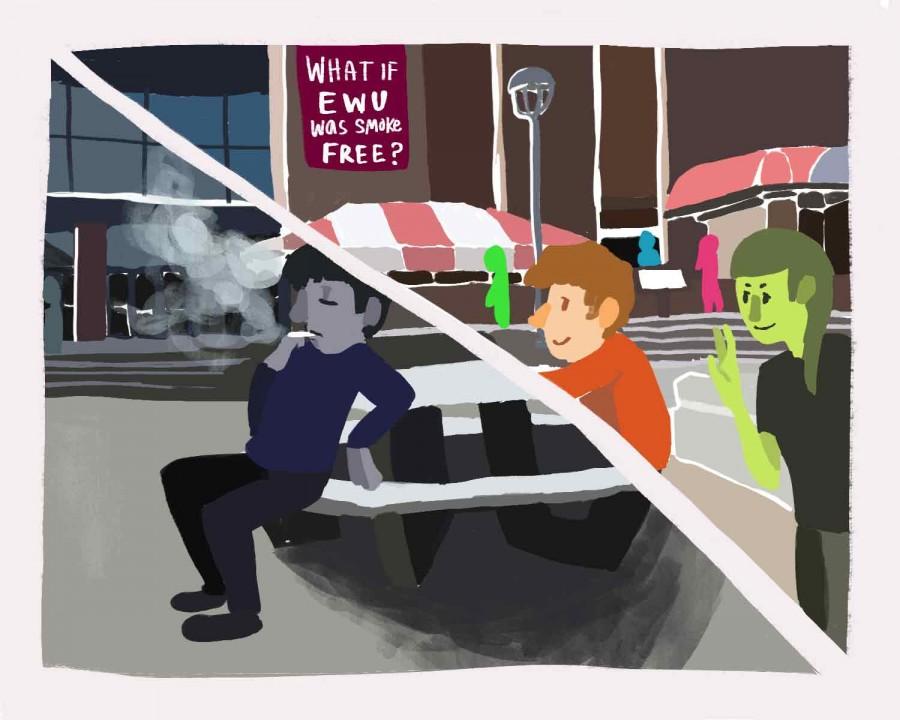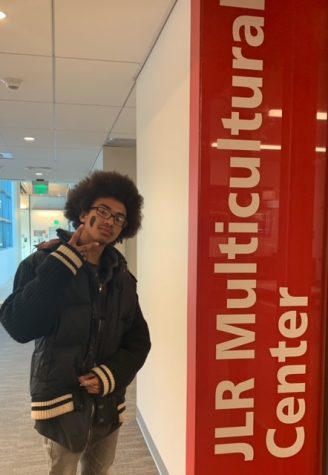Smoking areas benefit whole campus community
May 30, 2015
First and foremost, I want to make it clear I am not here to preach to anyone about whether or not they should smoke cigarettes. I couldn’t care less that people smoke. Not only is it none of my business, in the end it really doesn’t matter either way to me personally.
However, I do have beef with the way smoking is handled on Eastern’s campus. As far as I can tell, as a person who spends a fair amount of time on campus, the rules for smoking on campus are more or less non-existent. Although Eastern adheres (albeit seemingly barely) to state laws requiring a 25-foot buffer zone between people smoking cigarettes and building entrances, I can honestly say I have never seen that law actually being followed.
Although my personal preference would be a completely smoke-free campus, I can recognize the problems with that shift—the most prominent being that nicotine addiction is an issue to consider, and maybe a little sympathy for cigarette smokers wouldn’t be the worst thing in the world. So what it ultimately comes down to is that there simply needs to be more done to enforce laws dictating where smoking is allowed.
Not only do people choose to ignore the 25-foot buffer zone, resulting in a face-full of second-hand smoke for anyone exiting buildings on campus, but a lot of students choose to smoke while walking to class—again, resulting in a face-full (and subsequently lung-full) of second-hand smoke for whoever is behind them.
Now, most of us went through the “No Stank You” era of anti-smoking propaganda, but the fact of the matter is that secondhand smoke is dangerous. Not just for those of us with asthma (although that certainly doesn’t help matters at all), but in general. According to the Center for Disease Control and Prevention (CDC), secondhand smoke was responsible for 7,300 cases of lung cancer per year between 2007 and 2009.
You could argue that the time a non-smoker spends exposed to secondhand smoke while on campus is insignificant, but as far as I’m concerned, there isn’t any such thing as an insignificant exposure to secondhand smoke. Lung cancer is the most prominent form of cancer in the US, and without proper regulation of smoking in public places, it really doesn’t matter much whether or not a person smokes.
As I said earlier, I’m not really interested in banning smoking completely—both because I don’t think it would ever happen and because I recognize that cigarette addiction is something to consider. All I’m asking is for better-enforced smoking areas. My respiratory health is at least as important as your need to smoke.



















Mike Kiernan • May 31, 2015 at 9:30 pm
Excellent piece. I smoke and do everything I can to avoid inadvertently blowing smoke toward those behind me. I keep the legal distance in proximity to doors and windows. I do think designated smoking areas are a good solution. No one should be forced to share my habit. Little shelters for smokers with ventilation fans above blowing upward would be acceptable for me, and I think for non-smokers as well.
Mike Kiernan • May 31, 2015 at 9:35 pm
Oh yeah, and fine the crap out of anyone who breaks the rules. Or, to be more formal, strictly enforce the new ordinance.